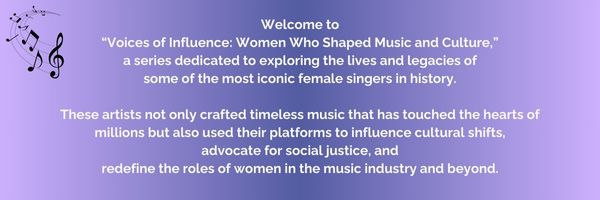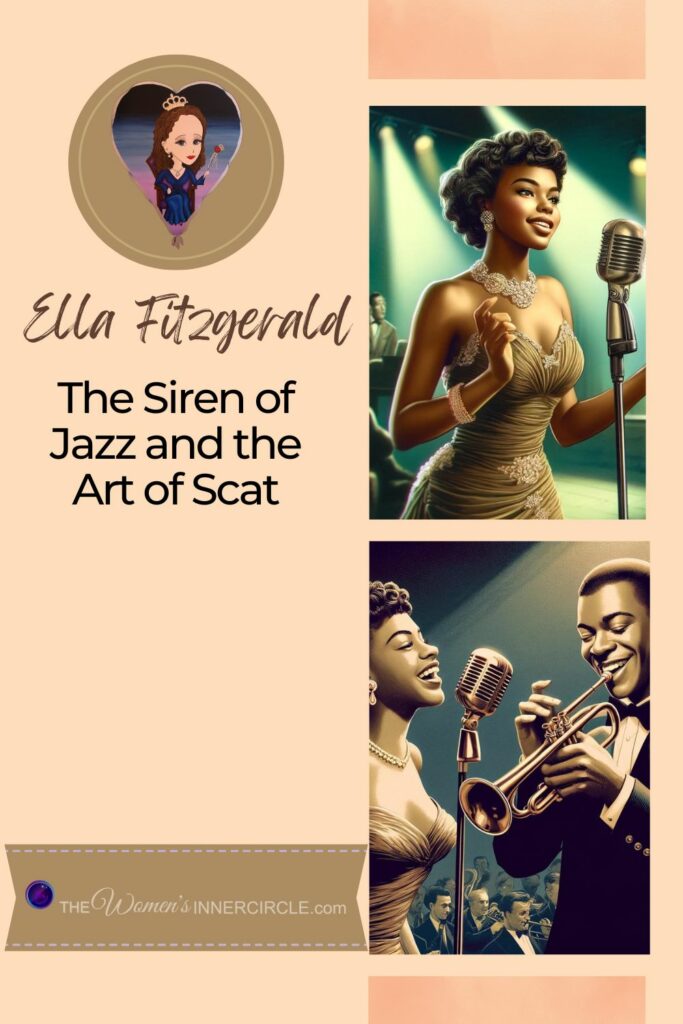Ella Fitzgerald: A Vocal Powerhouse Who Reshaped Jazz
Ella Fitzgerald, widely admired as the “First Lady of Song,” left an indelible mark on jazz music. Her influence stemmed from a unique combination of vocal prowess, innovative techniques, and a dedication to expanding the genre’s horizons.
Redefining the Jazz Vocalist
Fitzgerald’s vocals were unlike anything heard before. Her pitch-perfect tone, clear enunciation, and masterful phrasing set her apart. But it was her improvisational ability that truly revolutionized the role of the jazz singer. Fitzgerald could scat with the precision and creativity of a seasoned instrumentalist, mimicking solos and complex rhythms with her voice. This groundbreaking approach elevated vocalists to a new level of importance within jazz bands.

The Scatting Queen
Fitzgerald’s scat singing was legendary. She used her voice as a versatile instrument, crafting melodies and rhythms that mirrored the improvisations of saxophones or trumpets. Her iconic performance of “How High the Moon” at the 1960 Newport Jazz Festival remains a benchmark for vocalists studying the art of scatting***.
Collaboration and Innovation
Throughout her career, Fitzgerald collaborated with jazz greats like Louis Armstrong, Duke Ellington, and Count Basie. These partnerships weren’t just commercially successful; they pushed the boundaries of what jazz could be. Her work with producer Norman Granz, founder of Verve Records, was particularly impactful. Granz actively challenged racial segregation in the music industry, ensuring equal treatment for Fitzgerald during tours. He also championed her talent, helping to dismantle racial barriers for all artists.
A Vast and Versatile Songbook
Fitzgerald possessed an extraordinary musical range. Her vast repertoire spanned jazz, bebop, and the Great American Songbook. Over her lifetime, she recorded a staggering number of songs (around 2,000) and over 200 albums. Her interpretations of composers like George and Ira Gershwin, Cole Porter, and Irving Berlin are considered masterpieces. Her “Songbook” series, focusing on these composers, became a cornerstone of jazz and popular music repertoire.
Recognition and Enduring Legacy
Fitzgerald’s contributions were celebrated with numerous awards, including 13 Grammys, the National Medal of Arts, and the Presidential Medal of Freedom. Her vocal techniques and style continue to inspire artists across genres, from jazz to pop and beyond.
A Cultural Icon
Beyond her musical genius, Fitzgerald’s career paved the way for other African American artists during a period of profound racial prejudice. She leveraged her platform to advocate for civil rights, contributing significantly to the cultural transformations of her era.
Ella Fitzgerald stands tall as a giant in music history. Her artistic brilliance, unwavering work ethic, and profound love for music continue to resonate today, solidifying her legacy as a trailblazer who transcended both musical and cultural boundaries.
*** Scat Singing: The Instrumental Voice of Jazz
Scat singing is a unique jazz vocal technique where singers improvise melodies using nonsensical syllables or sounds instead of words. It essentially turns the vocalist’s voice into an instrument, allowing them to create improvisations that mimic the phrasing and rhythmic patterns of a saxophone or trumpet solo.
The exact origins of scat singing are unclear, but it’s believed to have emerged alongside jazz in the early 1900s. One popular story attributes its rise to Louis Armstrong, who supposedly improvised with nonsensical syllables to maintain rhythm and melody after losing his sheet music during a recording session. This unscripted moment, later captured on record, is said to have sparked the wider adoption of scat singing.
Scat singers rely on a variety of syllables, like “doo-be-doo-wop” or “ba-da-ba-dee,” chosen for their rhythmic and melodic qualities rather than meaning. These sounds allow singers to interact with the band in real-time, mirroring the improvisational interplay of a jam session.
Ella Fitzgerald stands out as a master of scat singing, renowned for her exceptional musicality and rhythmic precision. Her ability to navigate complex musical changes and scales with her voice, all while maintaining a swinging feel and conveying emotions, truly set her apart. Fitzgerald’s scatting transcended technical skill; it became a form of expression, allowing her to communicate musical ideas and feelings without relying on traditional lyrics.
This is part of a series called “Voices of Influence: Women Who Shaped Music and Culture.” If you haven’t read the first article about Billie Holiday, you can read it here.
Her Holiday music is fabulous and fun as you can see by these two songs. When I listened to them, I knew I had to share. What a voice!:

